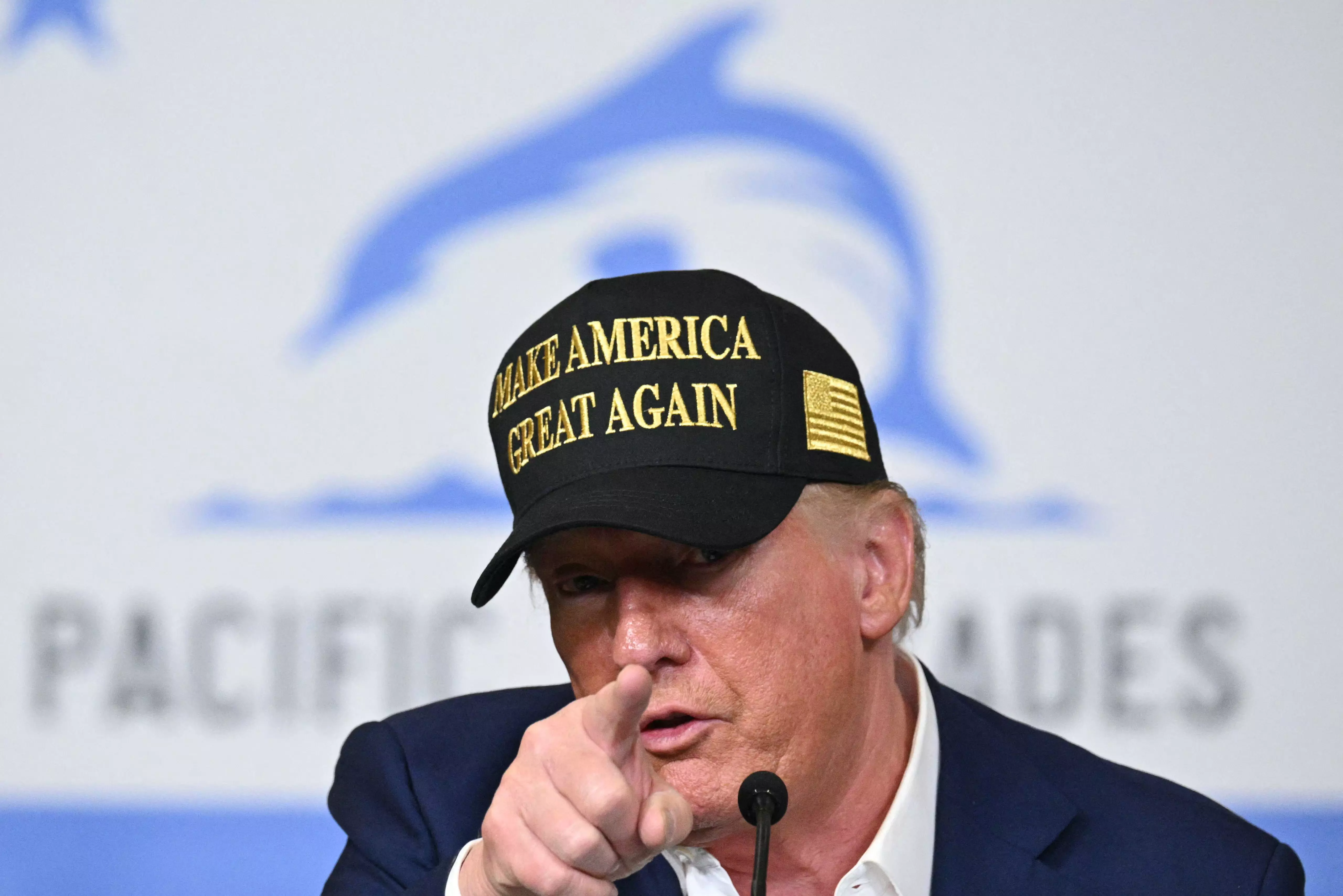Saeed Naqvi | Can Trump deliver on his promise to end the conflicts in Gaza and Ukraine?
Trump's stance on Ukraine, the Middle East, and global power dynamics, questioning Western hegemony and foreign military involvement

America’s new President Donald Trump could not have been more straightforward: “I want my legacy to be that of a peacemaker and a unifier.” He minced no words: “I will end the war in Ukraine and the chaos in the Middle East.” America will be the world’s greatest military power “not to win battles” but to end wars, and not to get into wars.
Power is not to be wasted in conflicts. It is an asset that ends conflicts and keeps the peace. Since America’s military was to defeat only “America’s enemies”, the signals to countries like Israel should be clear, unless the Israeli lobby extracts clarifications down the line. America’s military might was not meant to fight other people’s wars.
For at least the past 40 years, US foreign policy has been navigated by Israel or Israeli interests. Should Washington begin to look inwards, Israel will become the tail with no dog to wag.
Imperialism, however, has been kept intact in its earliest pristine form. Just take over the Panama Canal quite as casually as the senior President Bush had Panamanian strongman Manuel Noreiga picked up because the US had reasons to be cross. That was the exercise of power under the “well established” Monroe Doctrine.
If you impose such imperial doctrines, then of course the Gulf of Mexico can easily be renamed the Gulf of America. “The Monroe Doctrine is very much alive”, thundered Rex Tillerson during his brief spell as secretary of state in Mr Trump’s first term.
There is a growing school of thought that the West is fighting with its back to the wall in West Asia and Ukraine not to obtain victories in these theatres but to protect Western hegemony, now in free fall. Mr Trump didn’t give any credence to idea of the US as a hegemon. He did appear irritated by the chant abroad of “decline”, but he would arrest this perception by means other than wars.
It’s a foregone conclusion that the West has lost in Ukraine, pending a final peace agreement. This is where Mr Trump must show his hand.
A reversal like Ukraine is bad for the West, but Mr Trump has so divided Western thinking that recent electoral verdicts in Europe may well be to his liking.
It must have been with a heavy heart that The Economist’s editor cleared the headline for its January 11, 2025 edition: “Putinization of Central Europe”. Will Mr Trump be amused by this kind of establishment anxiety?
The editorial sheds copious tears at the “rise of Herbert Kickl, leader of Austria’s hard-right Freedom Party”. The writer mollifies himself that Austria is a country of only nine million. But come the German elections in February, Europe’s largest country is expected to bring the far-right Alternative for Germany to power, although it will be tough to beat the Christian Democrats.
Leaders like Hungary’s Victor Orban have been quite vocal. “Bring back Trump.” Others of the same ilk are Robert Fico of Slovakia and Andrez Babis, who is likely to win in the Czech Republic. That’s not all. Also lost to the old West are Georgia, Moldova, Romania, and more are coming. How long will Emanuel Macron of France, menaced by the fascist Marine Le Pen on the right and a powerful Communist-Socialist coalition on the left, keep playing one against the other without going under.
Russia’s current score in Europe is good but they are clearly on the backfoot in Syria even though they haven’t been routed. Their bases in Latakia and Tartous are intact. A tired Bashar al- Assad, politics thrust upon him by his elder brother’s death, can now attend to his wife’s cancer in Moscow.
Moreover, by creating the illusion that Assad was handed to them as a trophy, the US-Israel combine would have seen a softening in their movement towards peace.
Of course, the October 7, 2023 killing of 1,200 people and the taking of 200 hostages was a huge provocation. Surely, Yahya Sinwar and his compatriots didn’t think that October 7 would bring them victory: a Palestinian state. It was an invitation so the Israel-US could expose themselves as genocidal murderers: at least one of them, Israel, certified so by the International Court of Justice.
When Lady Macbeth wouldn’t stop washing her hands after Duncan’s murder, Shakespeare had created a woman, hard as nails, and yet human enough to break down with guilt. But Benjamin Netanyahu and his far-right colleagues are made of different stuff.
Now that peace has arrived, even if temporarily, people will ask: Who won? The Western narrative is already in full spate: Hamas and Hezbollah have been thoroughly “degraded”.
The other narrative sees this as Western propaganda. After all, the reason Mr Netanyahu kept up his genocidal destruction of Gaza for so long was because his war aims hadn’t been fulfilled. Neither has Hamas been destroyed nor have all the hostages been returned, not without the ceasefire deal.
Also, Hezbollah is nowhere near being defeated. Israelis have not returned to their homes in northern Israel. The number of Israelis fleeing Israel because of the seemingly endless war has not diminished. How many Israeli soldiers were killed? Peace is not a good time for belligerents who had to conceal the truth.
At the first inkling of a ceasefire, Palestinians in Gaza came out dancing in jubilation on the debris and mangled steel which was once their home. They have nothing to hide. Their tragedy was seen by millions worldwide.
The mood was sombre on the Israeli side. Should peace really descend, skeletons will come rattling out of shelves and cupboards. The people want peace, but do their leaders? Has Donald Trump’s speech added to their gloom?
